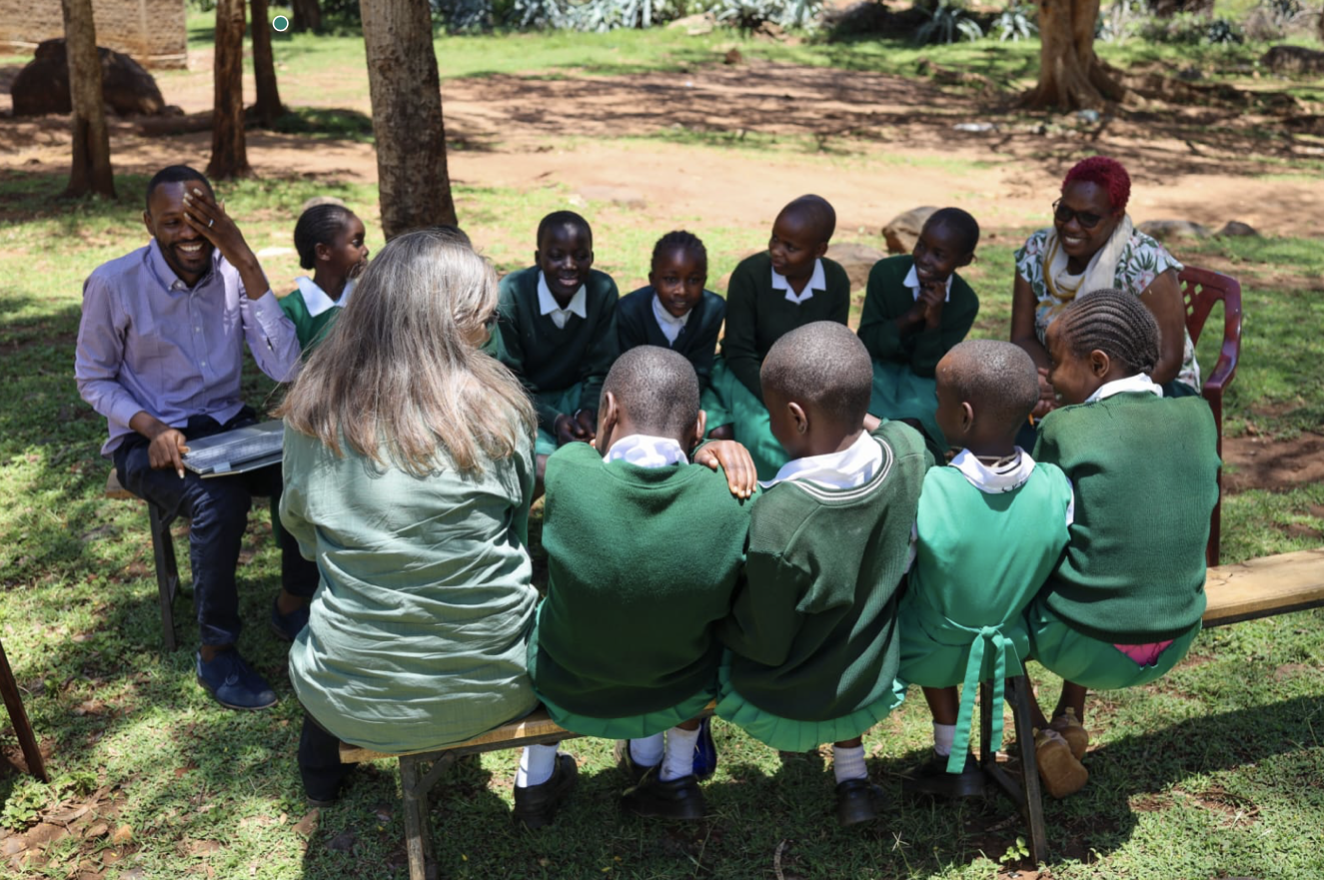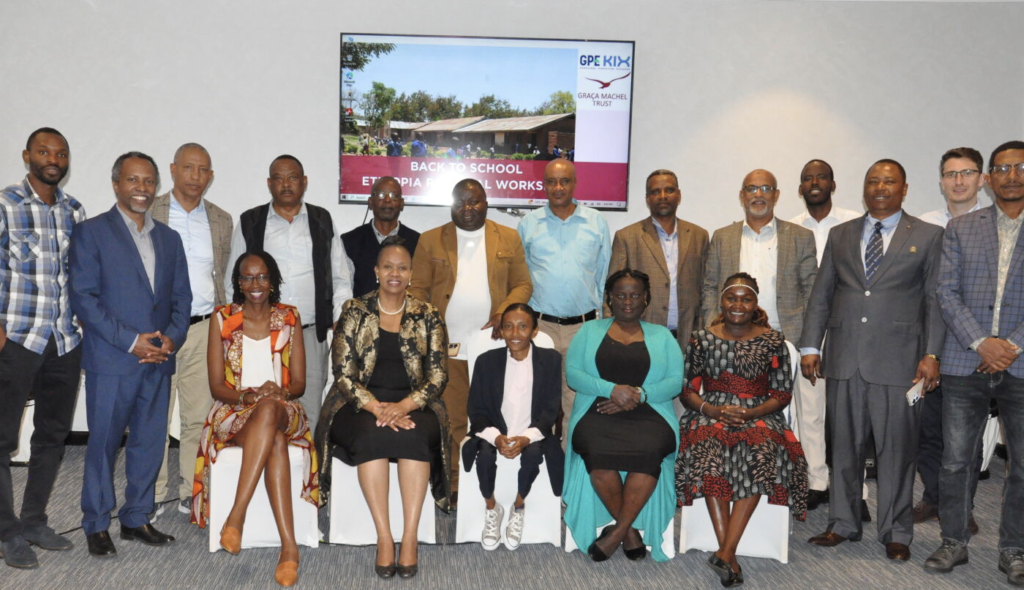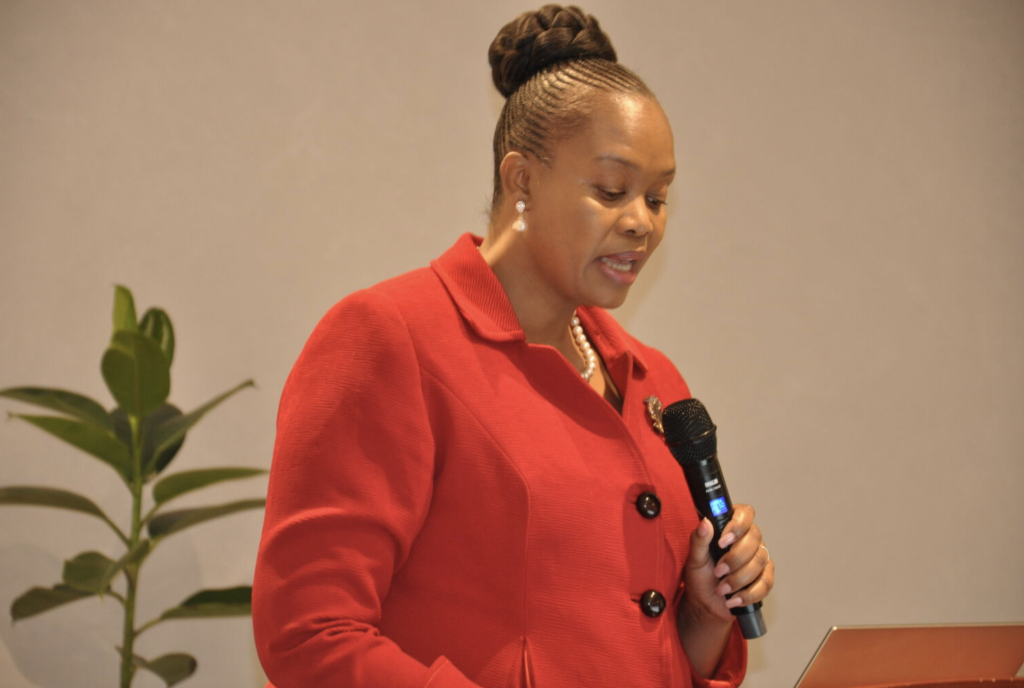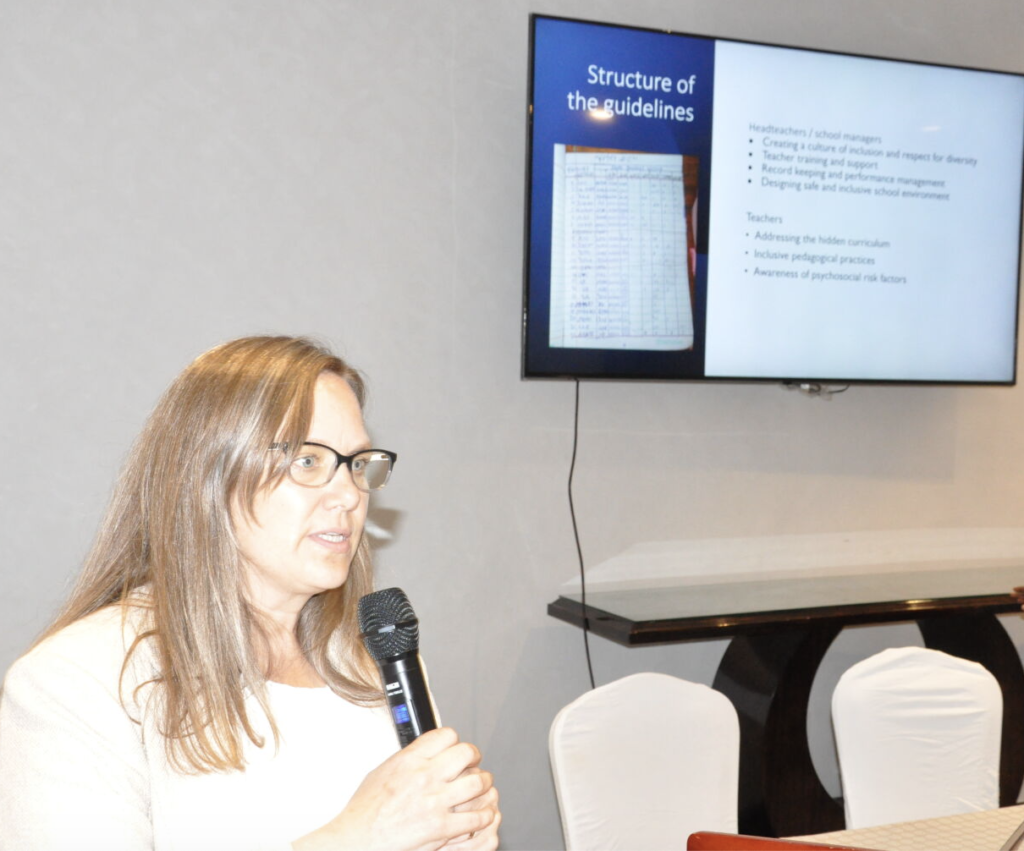Education is the cornerstone of a brighter future. Nevertheless, the world continues to grapple with a pressing challenge: the high number of out-of-school children. According to a UNICEF report, in 2022 alone, more than 244 million children worldwide were not attending school, with girls being disproportionately affected. Sub-Saharan Africa bears the heaviest burden of this global education crisis.
With the generous support of the Global Partnership for Education Knowledge Innovation Exchange (GPEKIX), the Graça Machel Trust (The Trust) launched the Back 2 School research project. This project unveiled a stark reality: Tanzania, Ethiopia, and Kenya are among some African countries with alarmingly high levels of out-of-school children, particularly in rural areas. Although the contexts may differ, these countries still face similar systemic challenges, including poverty, negative socio-cultural practices, and structural barriers that exacerbate the vulnerability of children, often compelling them to drop out of school.

Photo by Powon Long’ironyang: Graca Machel Trust MERL Officer Rinji Kwarkas in Kenya West Pokot during one of the site visits.
To confront this profound issue, The Trust collaborated with implementing partners in these countries – the African Child Policy Forum (ACPF) in Ethiopia, the I am Responsible Foundation (I-REP), Pan African Research Services (PARS) in Kenya, and the Diocese of Musoma in Tanzania. These countries are taking various measures, such as the implementation of accelerated education programmes. While commendable, these efforts appear insufficient, given the scale and urgency of the problem.
Through extensive consultations with key stakeholders in the education sector and affected communities, the project identified areas for improvement and fostered consensus among stakeholders for necessary changes. Pilot testing of these interventions was also conducted to determine what strategies are proving effective and the challenges that still need to be addressed. As the project entered its final phase, the focus remained on further refining these accelerated education programs to ensure they could be adopted and scaled up in the three countries.
A Regional Cross-Learning Workshop

Photo by Rinji Kwarkas: Stakeholders and implementing partners during the regional workshop in Ethiopia
To evaluate the progress made and facilitate knowledge sharing among stakeholders, the Trust recently organised a regional cross-learning workshop with its research partners in Ethiopia. Stakeholders had the opportunity to visit some of the implementing schools to observe the implementation of the enhanced accelerated learning model in the country. The hands-on experience enabled them to comprehensively understand the situation and the associated issues, which they brought into the subsequent regional workshop to ensure a deeper understanding of the pilot testing.

Photo by Rinji Kwarkas: Shiphra Chisha shared insights on the advancements made in improving accelerated learning programmes through research and collaboration with education stakeholders.
Ms Shiphra Chisha, the Trust’s Director of Programmes, was present during the site visits and subsequent workshops. She shared her insights on strengthening collaboration between development partners and the government during the workshop. She emphasised, “Our role as partners is to identify effective strategies in different country contexts and scale them in the schools currently involved in the programme. We need to take lessons and evidence available to other schools facing similar challenges.
“We are exploring ways to collaborate with the governments to enhance the impact of our efforts. We recognise that we can never replace the government’s role; our role is to support and enhance what you are already doing. Ultimately, we must pass the baton on to you.” – Shiphra Chisha.
Dr Quentin Wodon, Director of UNESCO International Institute for Capacity Building in Africa (UNESCO IICBA), shared insights on the importance of girls’ education, teenage pregnancies, maternal and neonatal health, and holistic implementation approaches. Dr Wodon joined the session remortely and stressed the significance of training for female teachers in African education.
“Girls’ education has far-reaching benefits, and female representation in the education system is vital. Promote the importance of girls’ education and encourage the hiring of more female teachers and administrators. Implementing partners should consider collaborating with organisations like the Centre for Girls Education in Nigeria to advance girls’ education.”- Dr Quentin Wodon.
To achieve this, he added that collaborating with like-minded partners such as UNESCO would be beneficial.
Also present during the workshop were Mr Serhiy Kovalchuk, Programme Officer Knowledge and Innovation Exchange (KIX) of the International Development Research Centre (IDRC), Dr Joan Nyanyuki, Executive Director of ACPF, and Mr Yoseph Abera, Chief Executive Officer, Adult and Non-Formal Education, Ministry of Education, Ethiopia. Their contributions centred around fostering pan-African collaborations rooted in a reflective approach to address developmental challenges, with education emerging as a fundamental building block for progress.
The Power of Gender Equality and Social Inclusion Guidelines
Gender disparities in education persist as a global concern. During the workshop, a significant issue that continued to be raised was the lack of adequate attention to gender in the initial pilot phases of the project. Despite it being critical, Gender Equality and Social Inclusion (GESI), , has often not received the priority it deserves. By targeting rural girls, the Back 2 School project addressed not only the issue of out-of-school children but also the broader social and economic challenges associated with gender disparities in education.
For this reason, the Trust recognised the potential of GESI in education and believes that it should form the foundation of all accelerated education programs (AEPs) and basic education.

Photo by Rinji Kwarkas: Ingrid Palmary empasising the importance of GESI guidelines.
During the regional workshop and stakeholder meetings, Ms Ingrid Palmary, the Back2School Project GESI Advisor, delivered a presentation emphasising the importance of integrating GESI principles into Adult Literacy Programs (ALPs) and basic education. She highlighted ongoing efforts in this direction and the potential positive outcomes, underlining the transformative impact of GESI on education.
“The ultimate purpose of the GESI guidelines is to usher in transformative change within the education sector. These guide educational institutions and programs, enabling them to chart a course towards gender equality and social inclusion. Addressing gender disparities and recognising the diverse needs of all individuals, irrespective of their backgrounds or identities, these guidelines can potentially reshape education for the better.” – Ingrid Palmary.
Reflections on Scaling Outcomes
The regional workshop fostered much-needed discussions and validated promising education strategies. The outcomes included:
- A shift in Kenyan communities’ perception of education.
- Improved academic performance in Ethiopia.
- Peer-to-peer advocacy for out-of-school children in Tanzania.
These outcomes highlight the potential of scalable solutions to drive lasting changes in education in the countries.
It also emphasised collaborative efforts and innovative strategies to ensure all children, regardless of gender or background, have access to quality education, ultimately paving the way for a brighter future. The commitment to these ideals propels progress, and the insights from these sessions serve as the foundation for action.










 The Trust supports and mobilises civil society networks on issues of ending child marriage, ending violence against children, ending female genital mutilation and promoting children’s rights, to carry out advocacy and action across Africa. Special focus is placed on Malawi, Mozambique, Tanzania and Zambia where child marriage continues to be a problem largely driven by poverty, gender inequality, harmful traditional practices, conflict, low levels of literacy, limited opportunities for girls and weak or non-existent protective and preventive legal frameworks.
The Trust supports and mobilises civil society networks on issues of ending child marriage, ending violence against children, ending female genital mutilation and promoting children’s rights, to carry out advocacy and action across Africa. Special focus is placed on Malawi, Mozambique, Tanzania and Zambia where child marriage continues to be a problem largely driven by poverty, gender inequality, harmful traditional practices, conflict, low levels of literacy, limited opportunities for girls and weak or non-existent protective and preventive legal frameworks.




 Education is a fundamental right for all children, which is also a vehicle for social, economic and political transformation in communities, countries and the African continent at large. Recent studies indicate a lack of progress in some of the critical commitments aimed at improving education quality, access, retention and achievement, particularly for girls. In most African countries, girls may face barriers to learning, especially when they reach post-primary levels of education. By implementing multi-dimensional approaches to education which includes core education, personal development, life skills and economic competencies, the Trust partners with funding partners, governments, civil societies and the private sector to improve education access.
Education is a fundamental right for all children, which is also a vehicle for social, economic and political transformation in communities, countries and the African continent at large. Recent studies indicate a lack of progress in some of the critical commitments aimed at improving education quality, access, retention and achievement, particularly for girls. In most African countries, girls may face barriers to learning, especially when they reach post-primary levels of education. By implementing multi-dimensional approaches to education which includes core education, personal development, life skills and economic competencies, the Trust partners with funding partners, governments, civil societies and the private sector to improve education access.

 The Nutrition and Reproductive, Maternal, New-born, Child and Adolescent Health and Nutrition, (RMNCAH+N) of the Children’s Rights and Development Programme aims at promoting the Global Strategy for women, children and adolescents’ health within the Sustainable Development Goals (SDG) agenda. The strategy emphasises on the importance of effective country leadership as a common factor across countries making progress in improving the health of women, children and adolescents.
The Nutrition and Reproductive, Maternal, New-born, Child and Adolescent Health and Nutrition, (RMNCAH+N) of the Children’s Rights and Development Programme aims at promoting the Global Strategy for women, children and adolescents’ health within the Sustainable Development Goals (SDG) agenda. The strategy emphasises on the importance of effective country leadership as a common factor across countries making progress in improving the health of women, children and adolescents. Through its Early Childhood Development (ECD) plan, The Trust will seek to put into action the new science and evidence Report that was presented by Lancet Series on Good and early development – the right of every child. This will be achieved by mobilising like-minded partners to contribute in the new science and evidence to reach all young children with ECD. The Trust’s goal is to be a catalyst for doing things differently, in particular, to rid fragmentation and lack of coordination across ECD sectors. In response to evidence showing the importance of political will in turning the tide against the current poor access and quality of ECD. Even before conception, starting with a mother’s health and social economic conditions, the early years of a child’s life form a fundamental foundation that determines whether a child will survive and thrive optimally.
Through its Early Childhood Development (ECD) plan, The Trust will seek to put into action the new science and evidence Report that was presented by Lancet Series on Good and early development – the right of every child. This will be achieved by mobilising like-minded partners to contribute in the new science and evidence to reach all young children with ECD. The Trust’s goal is to be a catalyst for doing things differently, in particular, to rid fragmentation and lack of coordination across ECD sectors. In response to evidence showing the importance of political will in turning the tide against the current poor access and quality of ECD. Even before conception, starting with a mother’s health and social economic conditions, the early years of a child’s life form a fundamental foundation that determines whether a child will survive and thrive optimally.